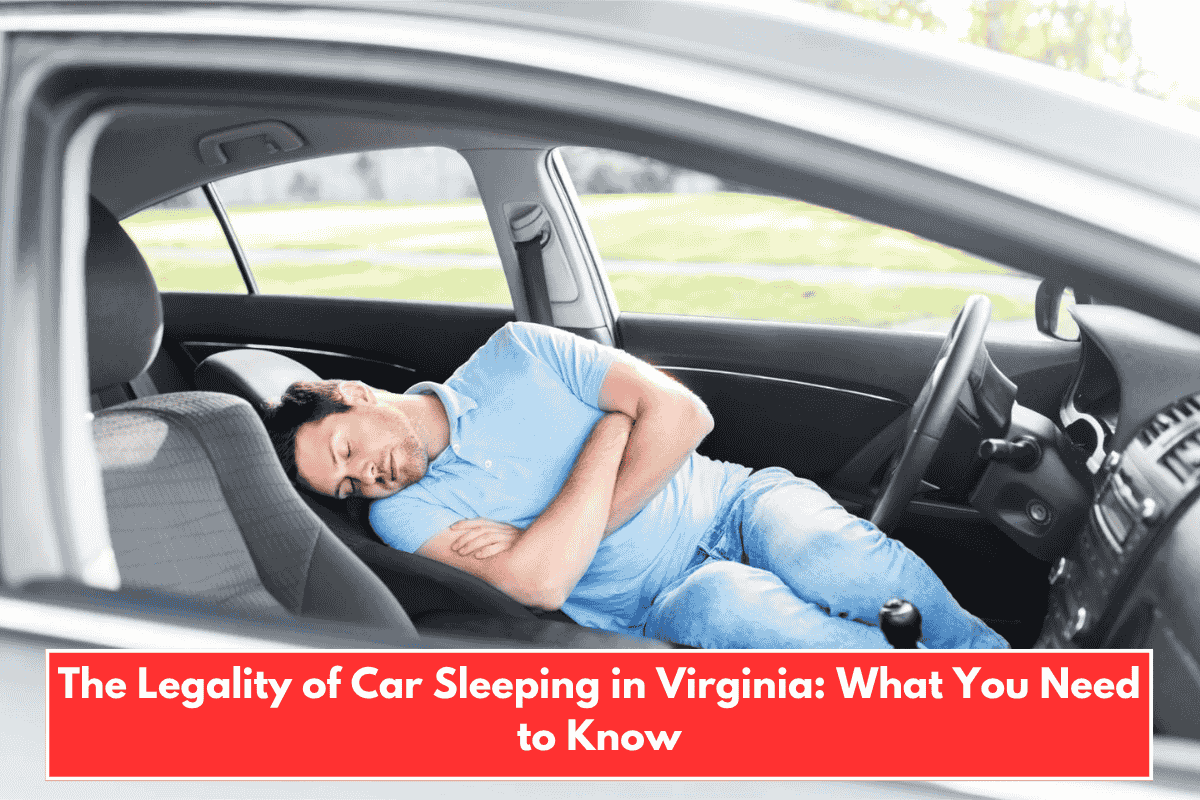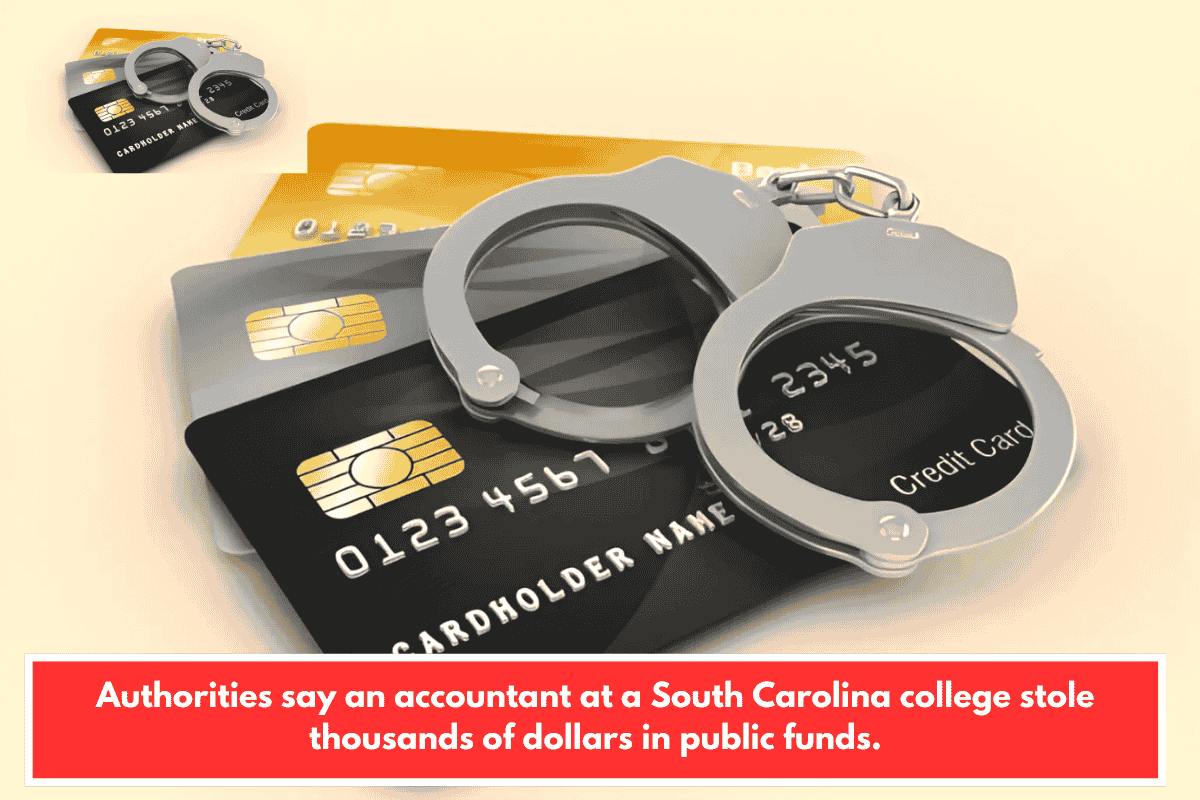Virginia, USA — As the weather gets warmer, many people might find themselves embarking on long road trips or simply needing a place to rest. For those considering sleeping in their car in Virginia, it’s important to understand the legal landscape surrounding this practice to avoid potential fines or trouble with the law. Whether you’re camping out for a night or need a quick nap, here’s everything you need to know about sleeping in your car in Virginia.
Is It Legal to Sleep in Your Car in Virginia?
Generally, it is not illegal to sleep in your car in Virginia. However, the location where you park and sleep is what can make it problematic. Virginia doesn’t have any statewide laws prohibiting car sleeping, but there are local ordinances and laws that regulate where you can park and for how long.
1. Private Property
- If you’re parking on private property, such as in a private parking lot or residential driveway, you must obtain permission from the property owner before sleeping in your car. Without permission, you could be charged with trespassing or face other penalties.
- Retail Parking Lots: Many large retail stores, such as Walmart, may allow overnight parking, but it’s essential to check with the store manager or ask for permission. Some businesses have no overnight parking policies, and you may be asked to leave.
2. Public Property and Streets
- Parking on public streets in Virginia is typically allowed, but local laws may restrict overnight parking or car camping in specific areas. Certain areas may have time limits, or you could be ticketed for blocking traffic or creating a safety hazard.
- Residential areas may also have local ordinances that restrict overnight parking. This is especially true for areas where there are parking permits or restricted parking zones.
3. Rest Stops and Highway Areas
- Virginia law allows travelers to sleep at rest stops and highway pull-off areas, but there are some restrictions. While it is legal to park at these locations for short periods, sleeping for extended periods or long-term camping is generally prohibited.
- Rest areas are designed for short-term breaks, and staying for several days could lead to being asked to leave or receive a citation. It’s best to check for any signs or regulations posted at these stops.
- Truck parking areas are typically designated for long-haul truckers. If you’re not driving a commercial vehicle, it’s still important to be respectful of the space and avoid overstaying your welcome.
4. Public Parks and Campgrounds
- Campgrounds or state parks are generally a good option if you’re planning on staying in your car overnight. Virginia’s state parks, such as Shenandoah National Park or First Landing State Park, offer designated camping areas where you can sleep in your vehicle.
- You must pay for a camping spot, and you may be required to follow specific rules about where to park, particularly in areas that allow car camping.
- Sleeping in your car outside of designated camping areas in state parks or public lands is typically not allowed, unless otherwise specified.
Risks and Potential Issues
Even if it’s not strictly illegal to sleep in your car in Virginia, there are several risks and issues you should be aware of:
1. Safety Concerns
- If you park in an unsafe area, such as near high-traffic roads, industrial zones, or isolated parking lots, you could be at risk of theft, vandalism, or violent crime. Always prioritize your safety and choose a well-lit, secure location if you plan on sleeping in your car.
2. Local Enforcement
- Many cities and counties in Virginia have their own local ordinances concerning car camping or overnight parking. Law enforcement may issue fines or ask you to leave if they believe you’re violating local regulations.
- For example, in Virginia Beach, sleeping in your car on public streets or parking lots may be prohibited without the proper permit, and violators may face fines or other penalties.
3. Long-Term Sleeping in a Car
- Extended stays in your car — even in permissible areas — can cause issues with local authorities or residents. In some cases, police may view long-term parking or camping as abandonment of a vehicle, or it could be construed as homelessness, potentially drawing attention from social services.
- If you’re homeless or at risk of becoming homeless, local shelters or community organizations can often provide more suitable accommodations and resources.
Alternatives to Sleeping in Your Car
If you plan to sleep overnight in Virginia, here are some better alternatives to ensure you remain within the law:
- Campgrounds and RV Parks: These locations are designed to accommodate campers, RVs, and vehicles, offering safe and legal spaces to sleep.
- Hotels and Motels: If you’re traveling, affordable accommodations might be a better choice than sleeping in your car.
- Public Restrooms and Showers: In some cases, truck stops, rest areas, and even campsites may have facilities for a more comfortable stay.
- Walmart or 24-Hour Locations: Some Walmart stores and similar businesses allow overnight parking, but always check with management to get permission.
Conclusion: Be Aware of Your Rights
Sleeping in your car in Virginia is legal in certain circumstances, but there are restrictions based on your location. Always make sure you’re following local ordinances, seek permission when needed, and prioritize safety when choosing where to rest. If you plan to sleep overnight in your vehicle, it’s a good idea to be informed about the local laws and any potential risks.
SOURCES
[1] https://preprod.lis.virginia.gov/bill-details/20251/HB2602
[2] https://lis.virginia.gov/bill-details/20251/HB2602/text/HB2602
[3] https://reolink.com/blog/is-it-illegal-to-sleep-in-your-car/
[4] https://teamjustice.com/is-it-illegal-to-sleep-in-your-car/
[5] https://www.lawinfo.com/resources/criminal-defense/is-it-illegal-to-sleep-in-your-car.html














